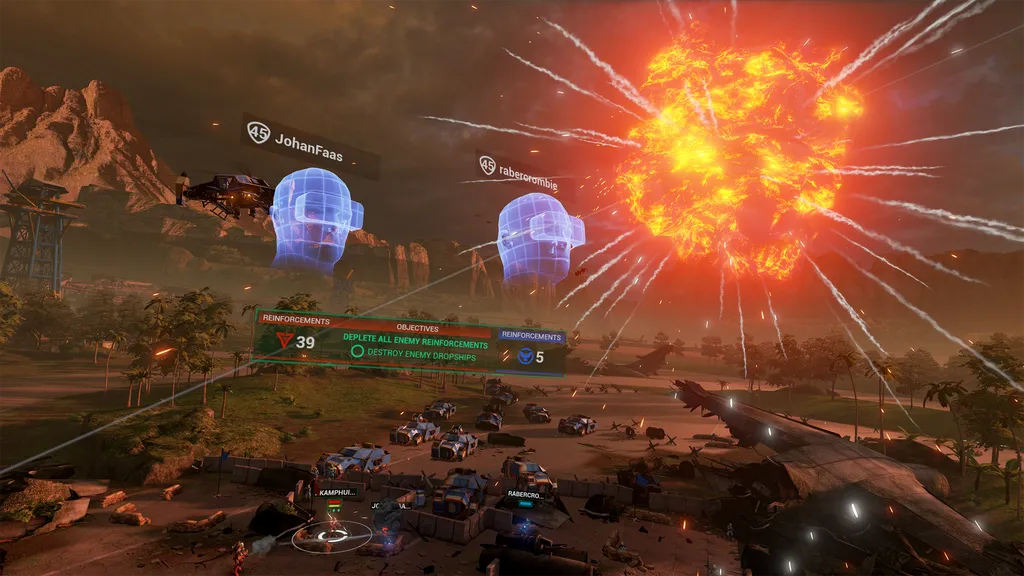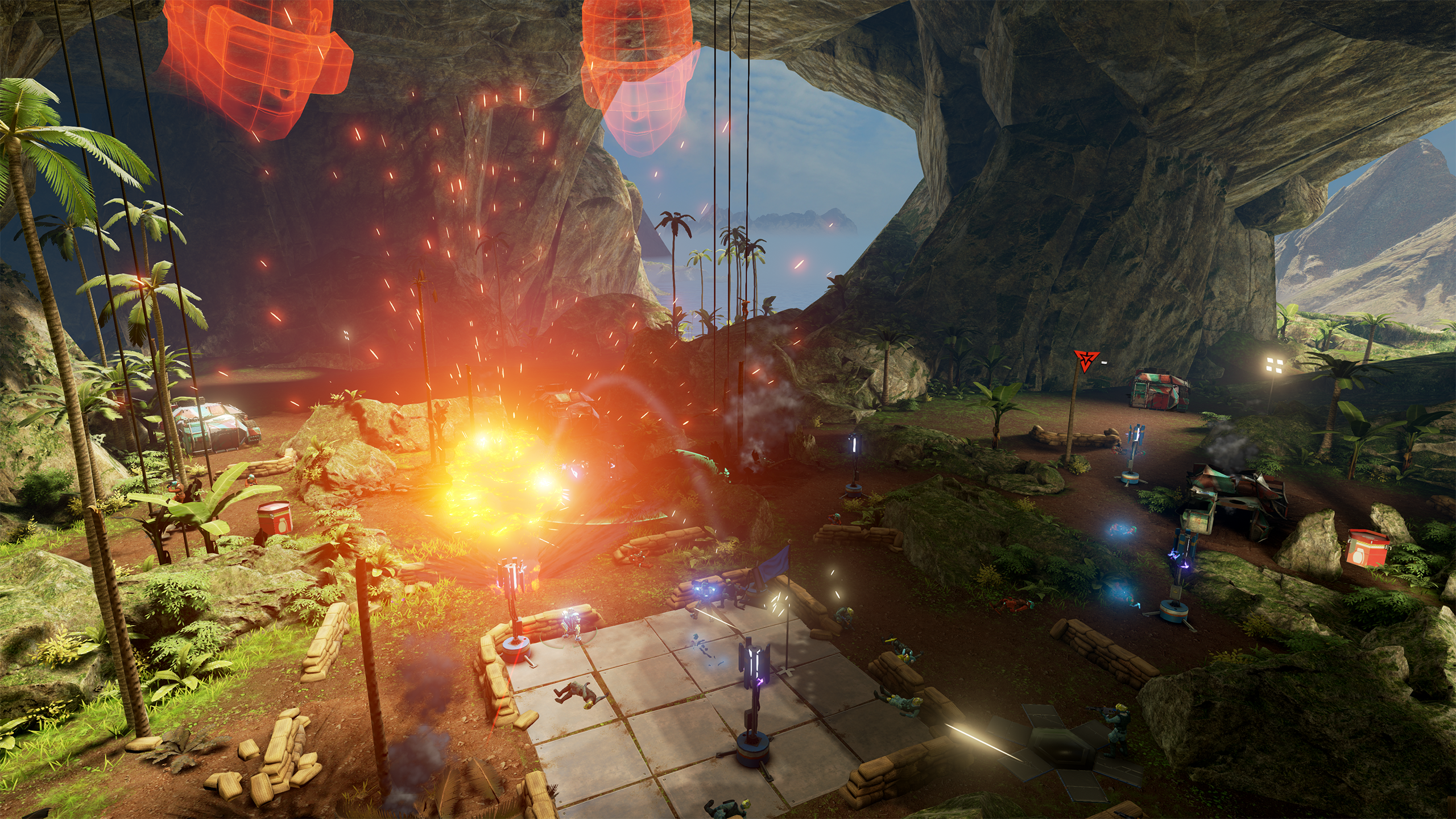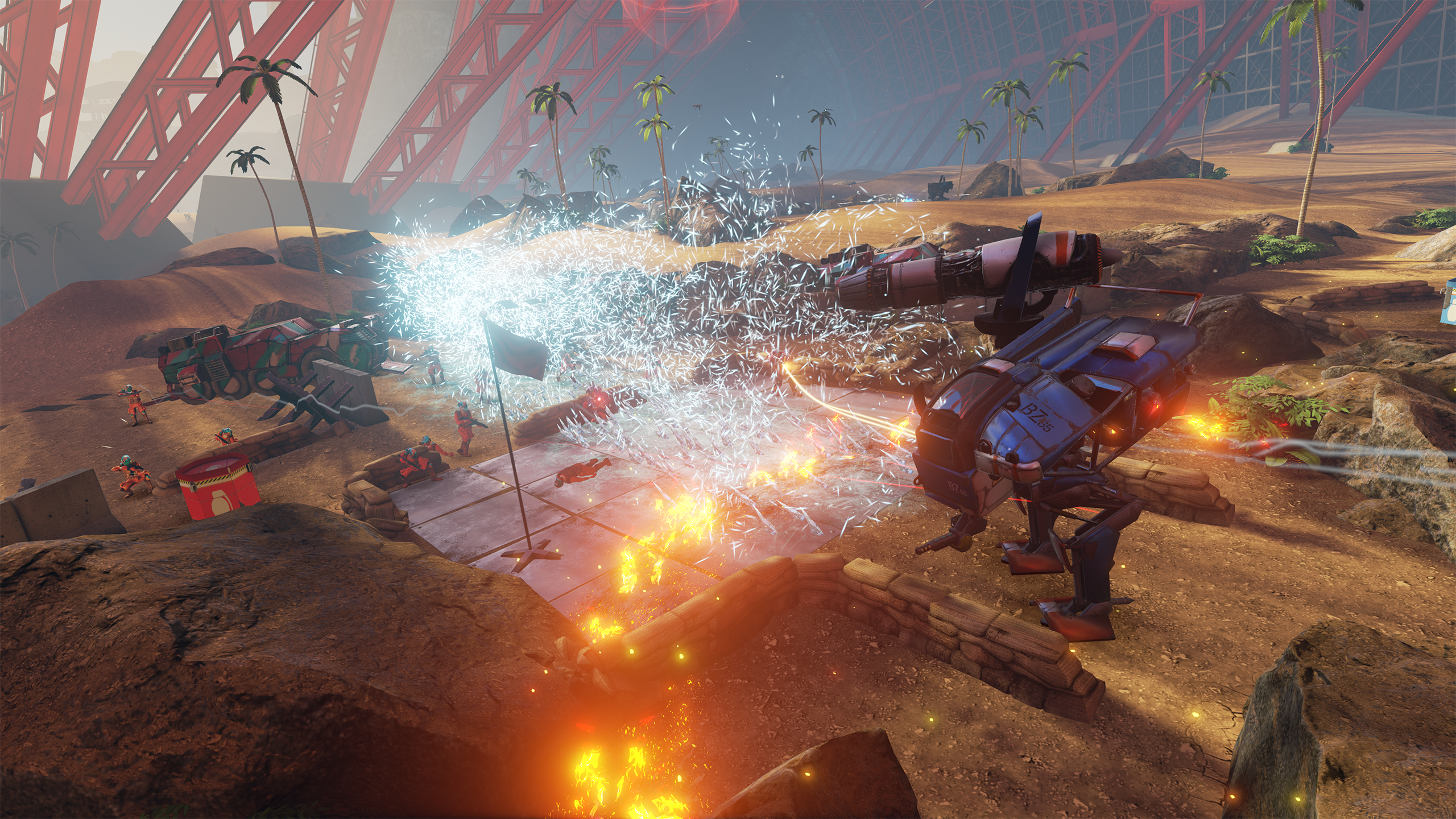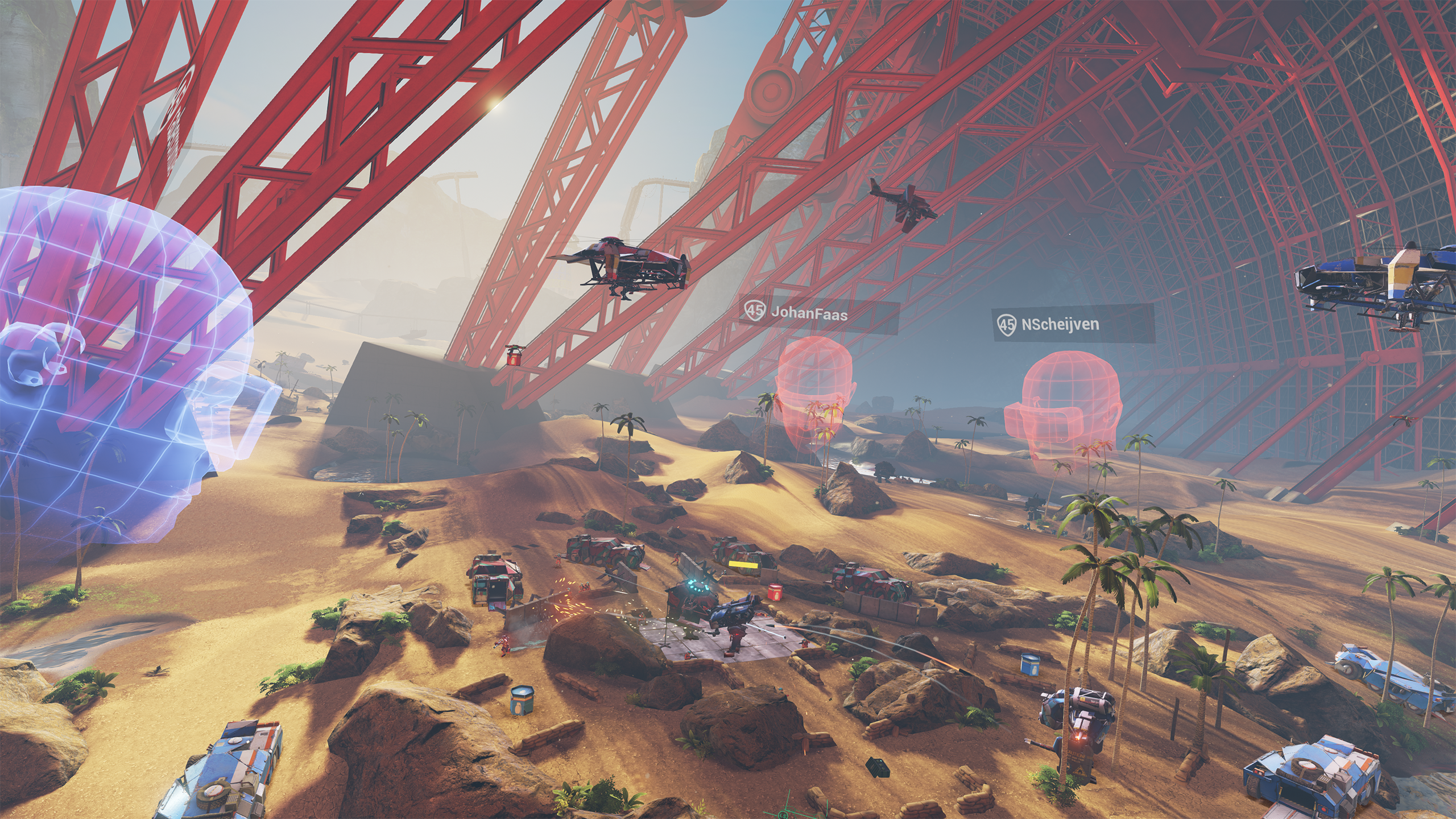I launched a mini nuke into the clearing halfway on the other side of the map to blow up a half dozen NPC enemies. With that latest attack, my partner and I had almost completely come back from the jaws of defeat. Mere seconds ago we were facing down horrible odds as the only two units left on our team. But my well-placed explosion changed everything.
The two enemy players we were facing were on their heels. My partner and I downed one of them, making it a 2-on-1 match up. Then my last enemy deployed his mech suit upgrade just in time to mow down my partner. I was pinned down behind a wall of sand bags, waiting for my health to regenerate, and finally summoned a mech of my own. My enemy was forced out of his own and tried to hide behind a large rock — pacing back and forth to keep the boulder between us in a duel to the death, but I eventually bested him.
The exhilarating gameplay, heart-pumping action, and tight controls convinced me that Landfall is a game I didn’t know I wanted in VR.
Force Field, an AR and VR company restructured from Vanguard Games, is the team behind Landfall and we had the chance to go hands-on with it at this year’s Oculus Connect conference. They teased the game back in July and are now ready to pull the curtain back and reveal it to the world.
Landfall is a top-down action game that uses a mixture of tactical real-time strategy game mechanics and twin-stick shooter gameplay. The entire experience is played with a gamepad and requires a high degree of dexterity between operating both thumb sticks, face buttons, triggers, and head-tracked movement all at the same time.
The left stick controlled my character’s movement from a diorama-style presentation of the game world, whereas the right stick controlled which direction I was aiming my gun. Pulling the right trigger fired my gun in that direction, and so on. Different unit types had different load outs, such as machine guns, rocket launchers, grenades, and more.
Over the course of a battle, players also built up the ability to call down a mech suit ability, similar to Titanfall. There were two different game modes I saw at the event as well, one of which involved escorting an item across the map, and another which involved whittling down reinforcements over the course of the match.
What struck me most about Landfall is that, despite the relatively simple concepts, the gameplay loop was addicting and satisfying. The VR diorama effect, as seen in strategy titles like Air Mech Command, did a great job of immersing you into the setting without sacrificing your perspective.
I always got a kick out of leaning in to inspect troops or get a good view of the action. On larger maps with larger forces and multiple objectives it’s easy to envision how things could get even more hectic.
Landfall is currently in development for the Oculus Rift with Touch, scheduled to arrive in early 2017.





























